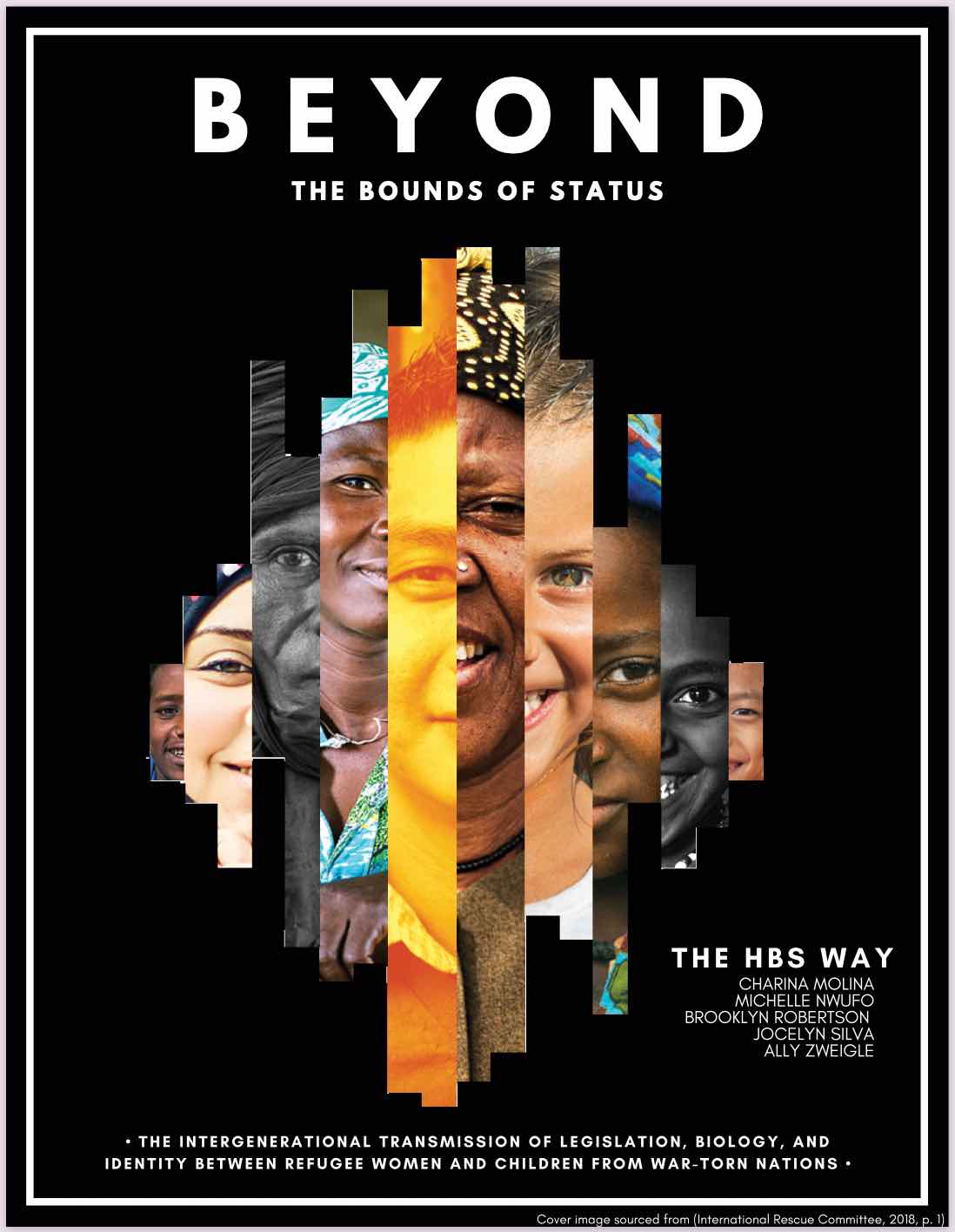Beyond the Bounds of Status

Most Dramatic Progress From Week 1 to Week 10
By: Charina Molina, Michelle Nwufo, Brooklyn Robertson, Jocelyn Silva, Ally Zweigle
The intergenerational transmission of legislation, biology, and identity between refugee women and children from war-torn nations.
In this magazine, we will argue that the refugee status becomes intergenerational through legal policy, impacts on health, and configurations of identity in different refugee communities across the globe. Given the international scope of the refugee crisis, it is necessary to first acknowledge that the effects of these domains may differ based on an individual’s gender and place of birth. Therefore, our project will focus on the experiences of refugee women and children from regionally- or culturally-defined groups. We discuss the legal implications of refugee status, the transmission of health effects from mothers to their children, and the intersectionality of refugee identities. Through deep discussion around the experiences of diverse populations displaced by socio-political conflict, we hope to appropriately articulate why being a refugee is more than a status or homogeneous experience. By delving into the political and biological effects of the refugee status, we will confirm that status is heritable and intergenerational through corrupt legislative policies, poor health outcomes, and forced social identities in refugee women and children.
This project wins an award for “Most dramatic progress from Week 1 to Week 10”. The team negotiated the challenge of thinking through intergenerational health effects and the refugee crisis to reach a deeper understaning of both issues and how they intersect, and they brought it together in an amazing document rich with information and thoughtful analysis." – Professor Kelty
comments powered by Disqus